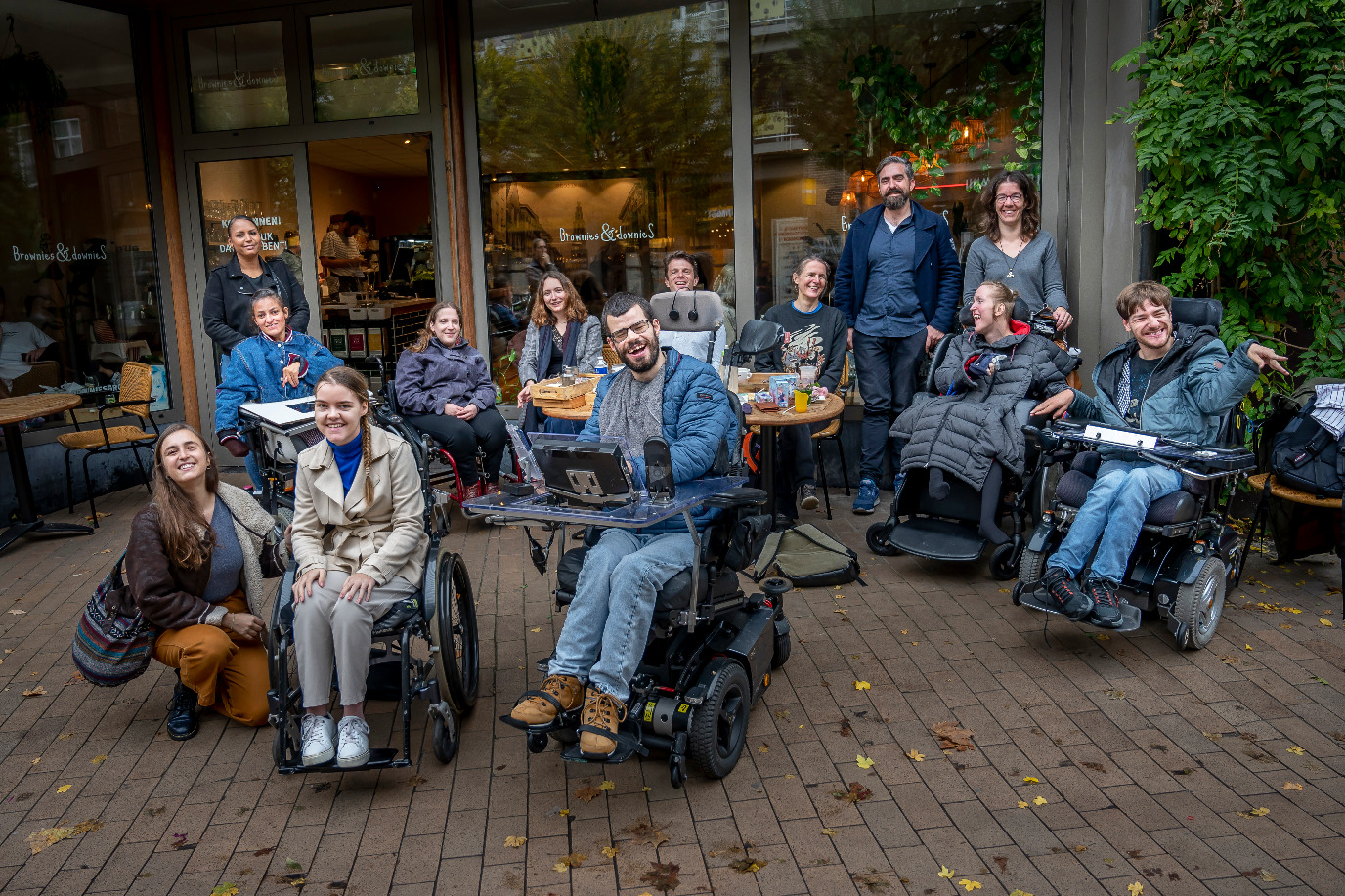Winner 2024 - This Abled City: Participatory Research on Accessibility with People with Disabilities
Team: Jenneke Blijdorp, Jeroen van Balkom, Leon Lodder, Lisa Tuin, Meinko Poel, Naomi Manuhutu, Tessa Meijer, Bettina van Hoven, Julia Munuera Garcia, Madelief Fisher, Julia Doornbos, Anna Lebedieva, Eveline Westra, Tanja Hendriks, Gerd Weitkamp, Sjoerd Kroon

Open Research objectives/practices
1. Making Research Outputs Freely Accessible: A free and open-access publication for planners and educators (soon also online) on incorporating people with disabilities in research and planning practices to help create more inclusive spaces and places together. This also includes an interactive map on Groningen’s accessibility (currently being finalized, based on participatory research data).
2. Using open collaborative methods and tools to increase efficiency and widen participation in research: A participatory research process using Design Thinking to involve people with disabilities as co-researchers. We also co-created a data collection tool (RolMaps, available online and as mobile application), accessible to a wide range of users with disabilities.
3. Promoting and facilitating the use of Open Research and Education practices: We collaborated with a societal stakeholder in community initiatives to collect data and actively facilitated the development of an open data collection tool for people with disabilities.

Introduction
The This Abled City project explores how accessibility and mobility shape the experiences of people with disabilities in the city, in collaboration with societal partner ‘s Heeren Loo, an organisation that provides care and housing for people with acquired brain injuries, deafness with complex problems and chronic, including progressive, neuromuscular diseases.
In light of efforts by municipalities in the Netherlands to meet goals as outlined in the UN Declaration of the Rights of people with Disabilities, our project makes visible the experiences of people with disabilities as well as exemplifies how to collaborate with them using participatory research practices to uncover their everyday realities.
In our project, we engage members of the public with disabilities in co-creating a data collection method as well as sharing knowledge via a map, a website, a book, and a published article.
Motivation
A key shortcoming in realising the aims stated within the UN Convention was the lack of collaboration with people with disabilities in (spatial) decision making processes. Movisie (2021) also reported that of the approximately 50% of Dutch municipalities who responded to their survey, 26.5% had thus far implemented a local inclusion policy. For more than 40% of the participating municipalities, a central question remains how to involve people with disabilities.
In our project, we tried to address the lack of first-hand experiences informing policy practices by engaging with people with disabilities directly in research and in ways that allow them to become partners/co-researchers. Specifically, we use a mobile application as well as an open-source data collection site (RolMaps). In the additional free and open-access book, we provide a case study outlining how we worked in this participatory process to inspire municipalities (and educators). This has the potential to help improve planning practices and help create more inclusive spaces and places.
Our co-researchers are also actively engaged in knowledge sharing, including as part of research presentations to policy makers, students and academics. The project has thus also functioned as an enabling research space.
Lessons learned
A key lesson from our project is the importance of community building in research involving marginalized groups. We benefitted greatly from collaborating with academic staff, students and societal partners. We learned that our approach and methods used can be empowering for marginalized groups and enable them to be involved in societal transformations. We also learned that our research efforts take time as well as the need of perspective-taking, and a preparedness to go beyond a data collection mode in research in order to provide a caring research collaboration. In our case, literally as we also assisted in enabling participation of people with disabilities by helping, for example with transport, and eating and drinking.
URLs, references and further information
-
This Abled City: data collection tool: https://www.thisabledcity.com/rolmaps/
-
Book: This Abled City. Samen werken aan een toegankelijke en inclusideve stad voor mensen met een handicap (soon also online). See: https://www.thisabledcity.com/output/public-output/
-
van Hoven, B., Fisher, M., & Munuera Garcia, J. (2024). Mapping the inclusive city: Engaging people with disabilities as co-researchers in Groningen (the Netherlands). Community Development. Advance online publication. https://doi.org/10.1080/15575330.2024.2310848
| Last modified: | 13 November 2024 4.42 p.m. |
